Denis O’Connor
The Tangler. Chapter 3.
18 July - 16 August 2014
Denis O’Connor’s The Tangler Project numbers over sixty works and has been seven years in the making. The wall pieces in this third and final chapter bring into the gallery what usually remains hidden in O’Connor’s voluminous archive of sketchbooks dating back to 1985, when he was The Frances Hodgkins Fellow at Otago University. Many of O’Connor’s works use text from a wide range of contemporary poets. Drawings on collaged fragments of roof slate mimic chalk on blackboard and are diaristic and instructional in tone. These roof-drawings portray O’Connor’s masked artist-figure in many differing role-plays and tropes. We see the artist as parent. We see him as ‘Beauty’ leaping into the void. He mimics how chance is an artist’s ally. We see him as long-distance athlete, hands-on manual worker or absurd show-off. The device of his horse-mask is suggestive of masquerade or trickster traditions – it recalls Oscar Wilde’s dictum:
Man is least himself when he talks in his own person – give him a mask and he will tell you the truth.
Coinciding with this show is the premiere of a documentary film called ‘Mindspaces – the Artists Studio’, that has been three years in the making. With Denis O’Connor as narrator and guide, we are taken into the private sanctuary of the studio he has occupied since 1971 – a room rich in layered histories and detritus. O’Connor obtained access to the studio and archive of the great 20th century artist Francis Bacon. O’Connor’s daughter, the late Dr Blaze O’Connor (1975 – 2009), was part of a small team responsible for the archaeological survey of Bacon’s famous studio, facilitating its transfer from London to Dublin. Through this survey we learn how Bacon’s chaotic studio functioned as the artist’s inspirational archive. O’Connor also turns the lens onto Lucian Freud’s studio in a revealing conversation with Freud’s biographer, the art historian Martin Gayford. Filmed in England, Ireland and France this documentary will be shown at the Auckland Art Gallery on Sunday August 3rd at 1pm. It was produced by English Director Stephanie Bennett, with support from the Chartwell Trust.
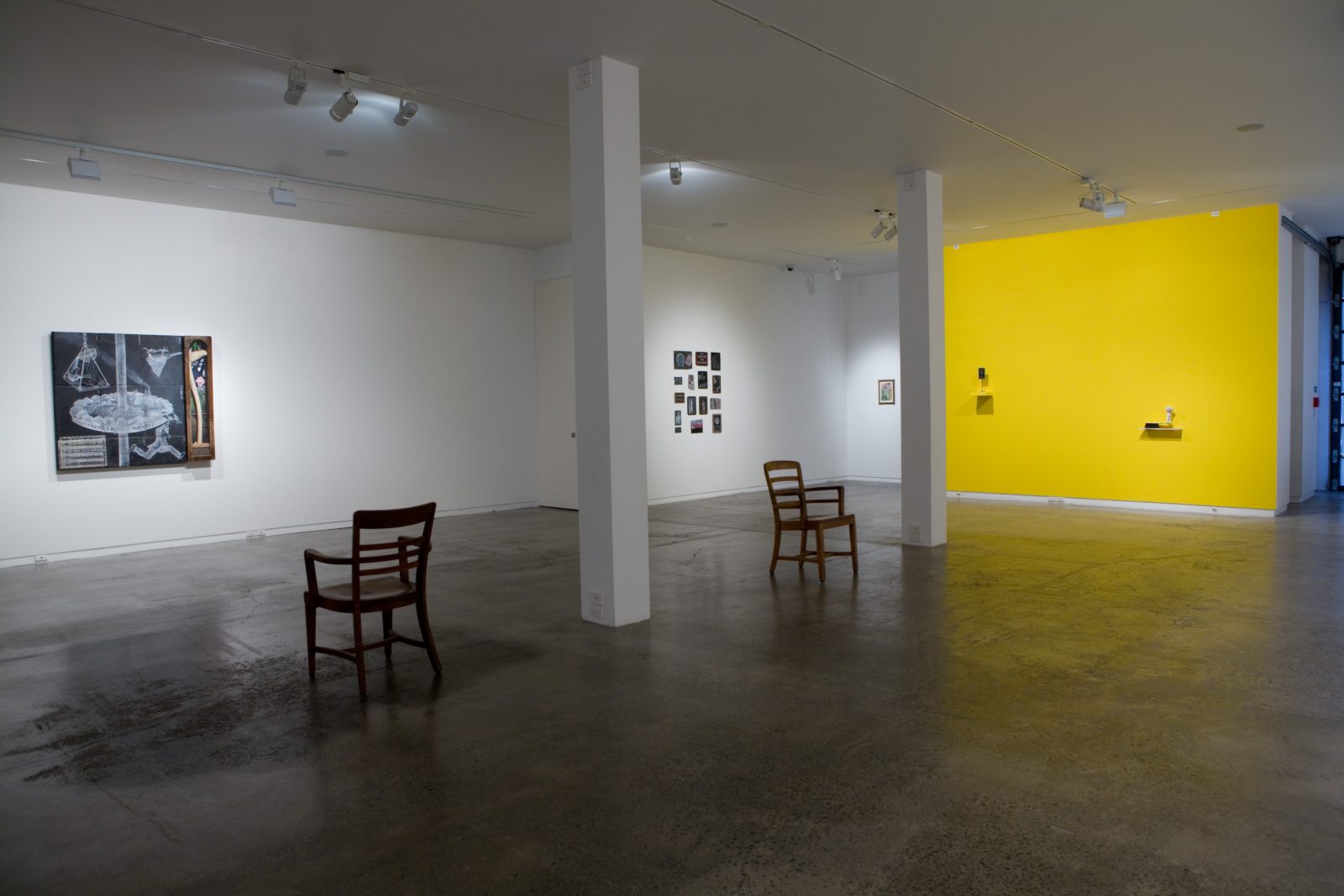
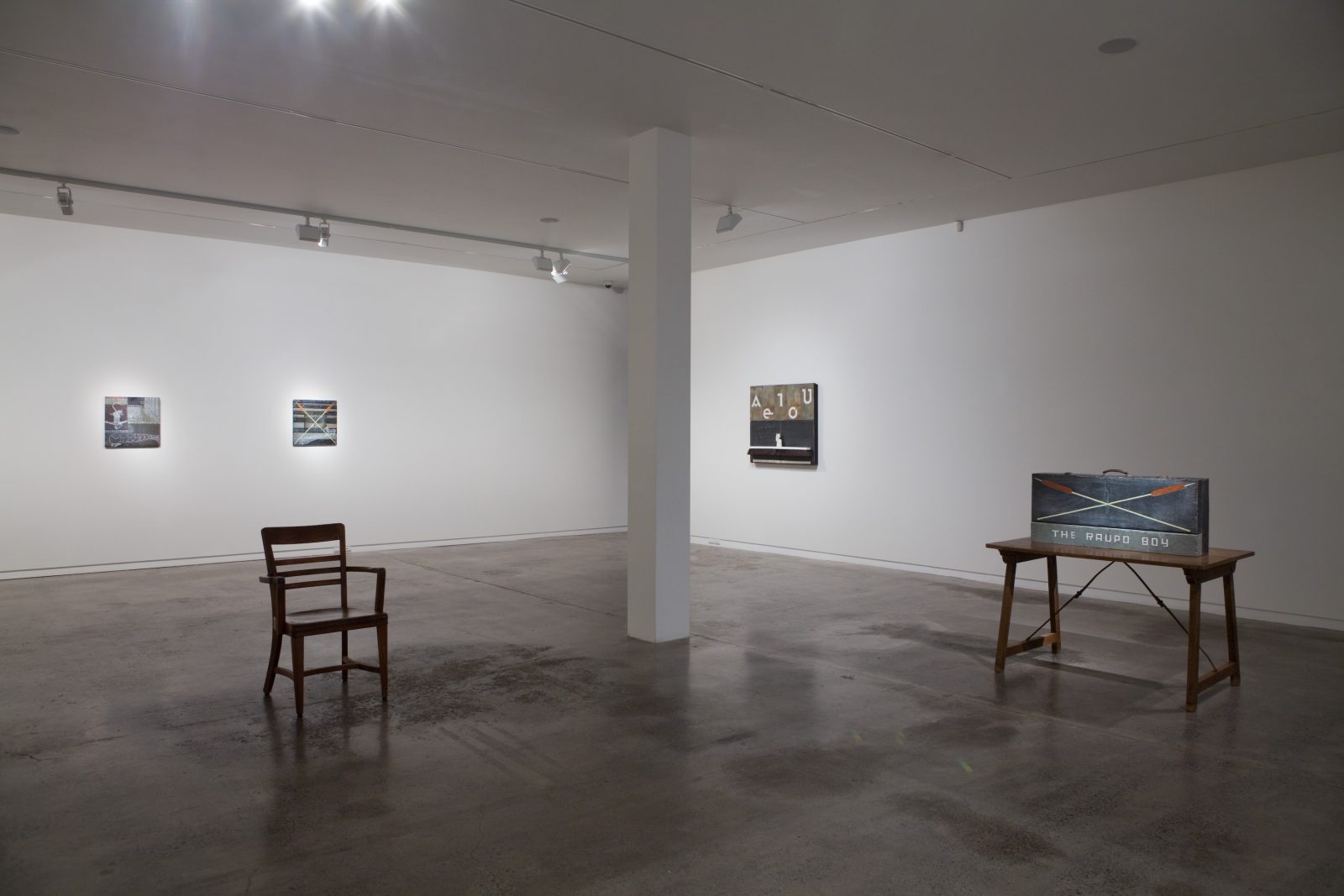
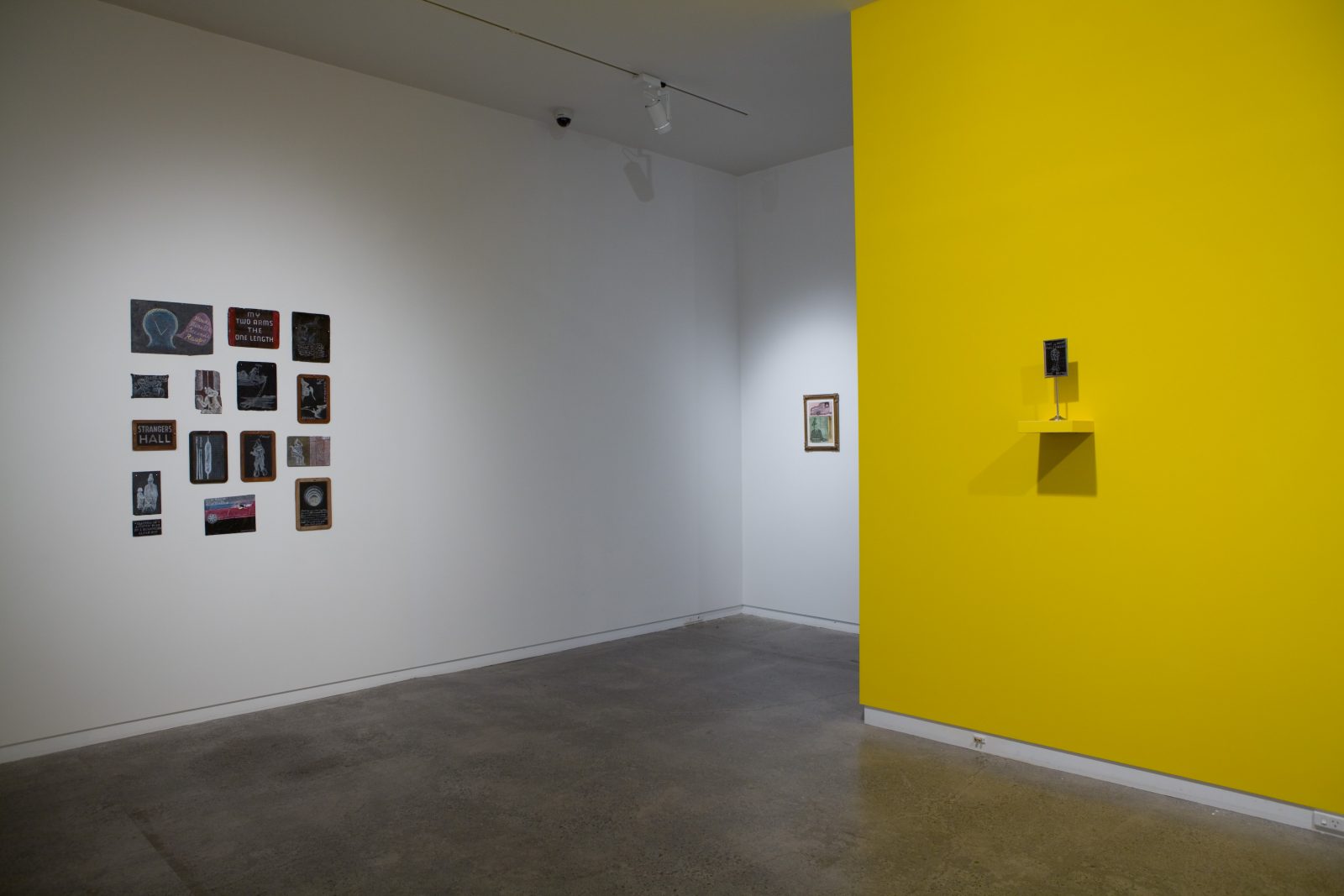
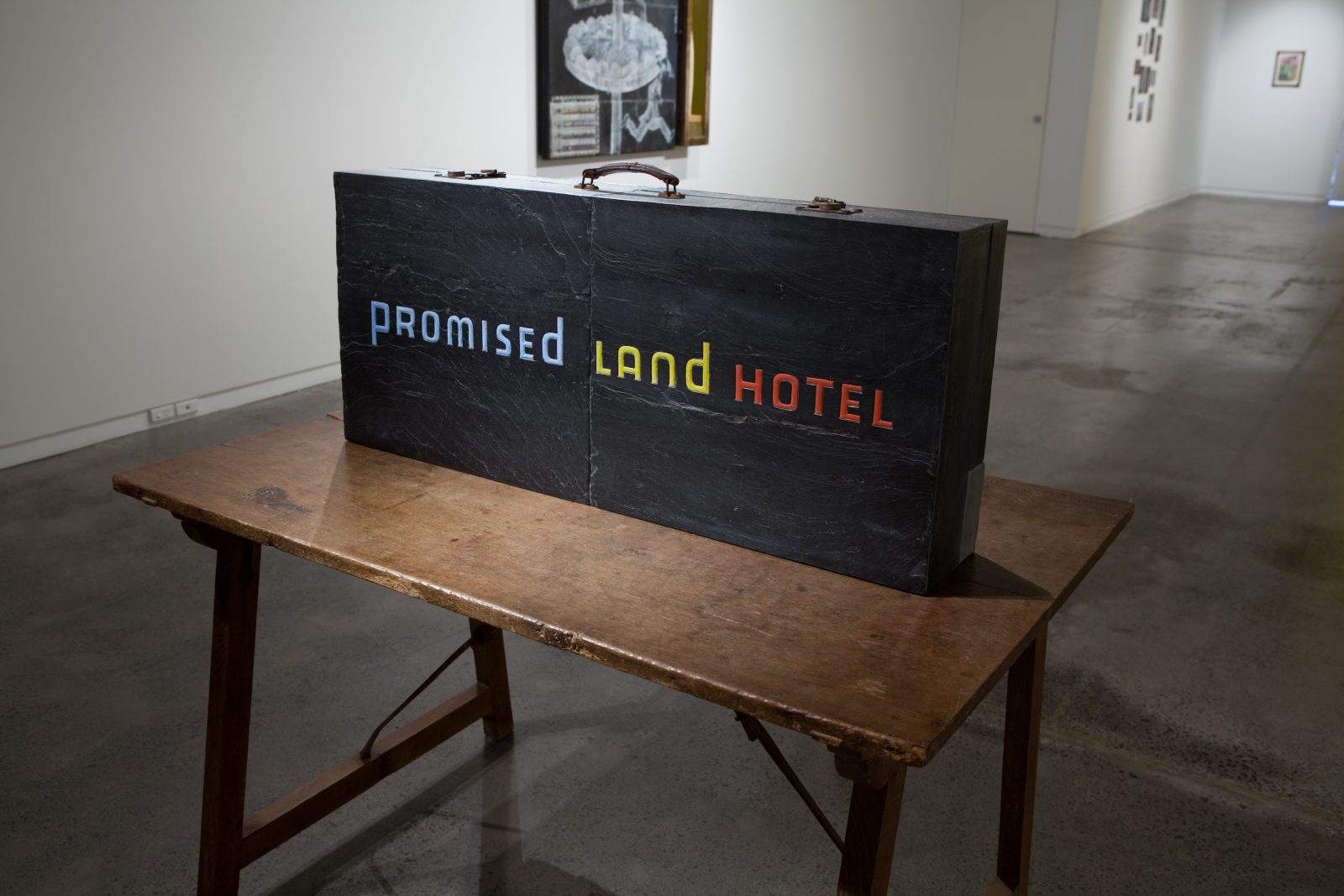
Suitcase Welsh and Vermont slate and pigment
980 420 x 165 mm
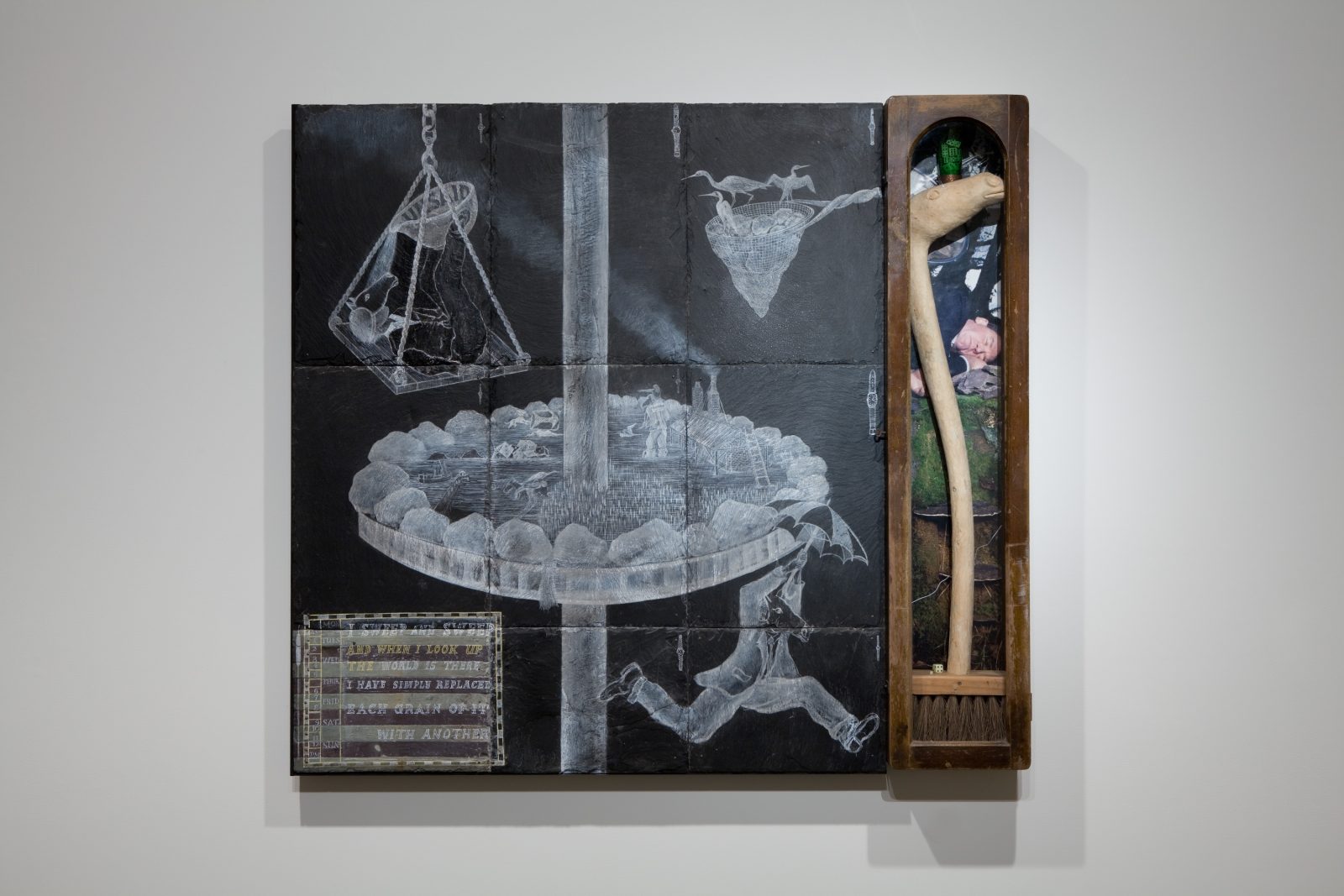
Spanish & English slate, pigment, photograph, kanuka, glass and dice 1280 x 1450 x 160 mm
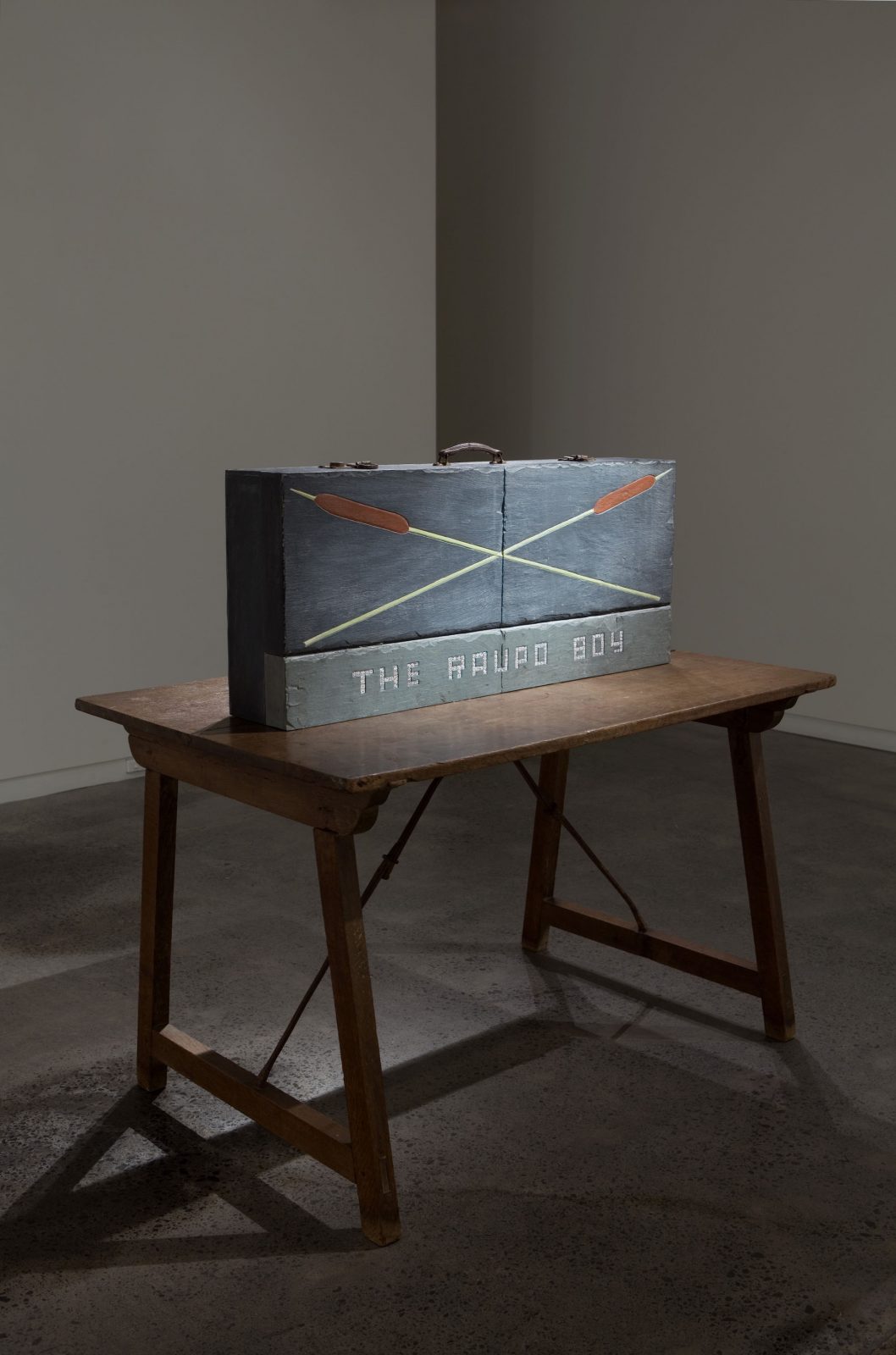
Suitcase Welsh and Vermont slate and pigment
980 420 x 165 mm
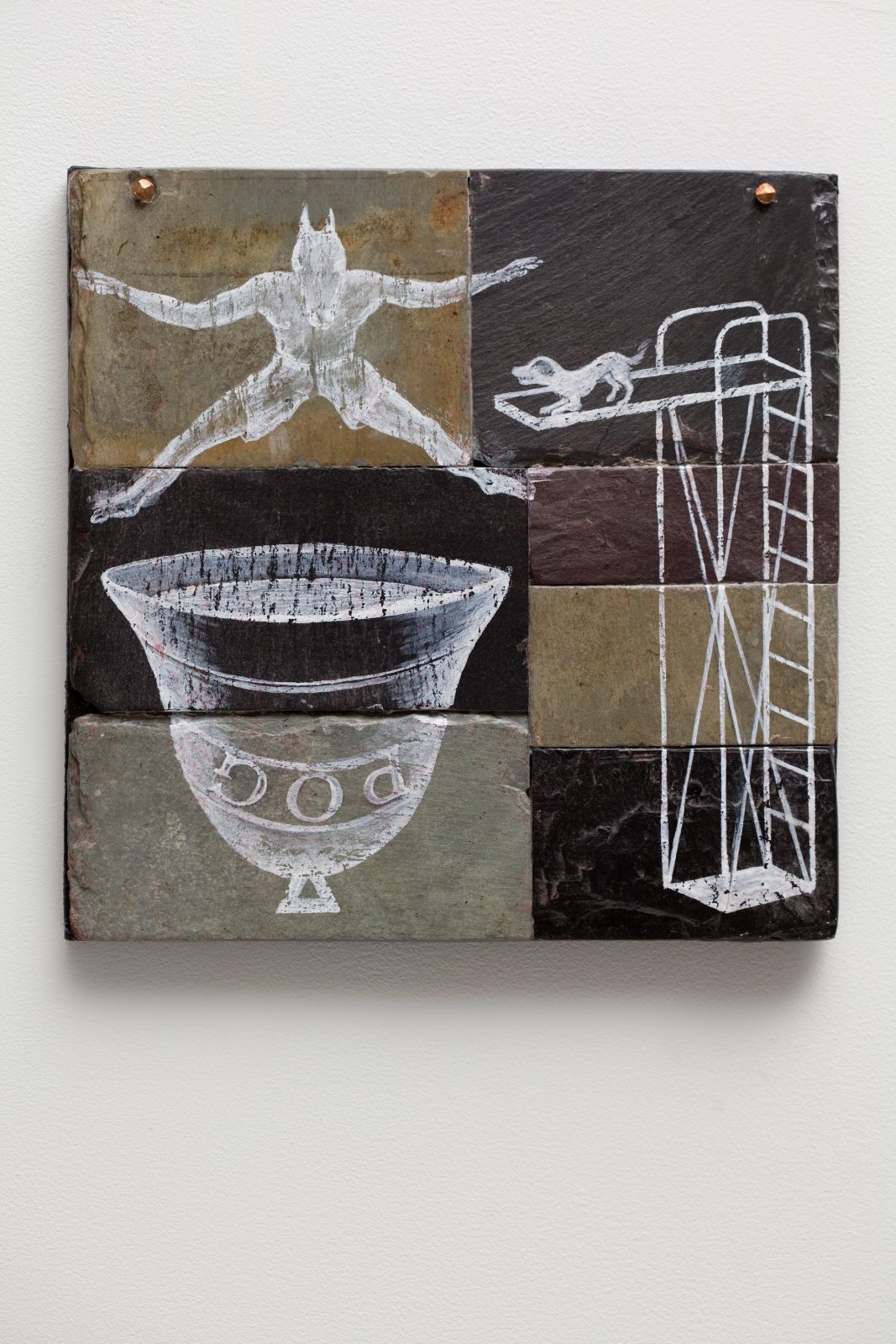
English and Welsh slate, pigment and wax 250 x 250 mm
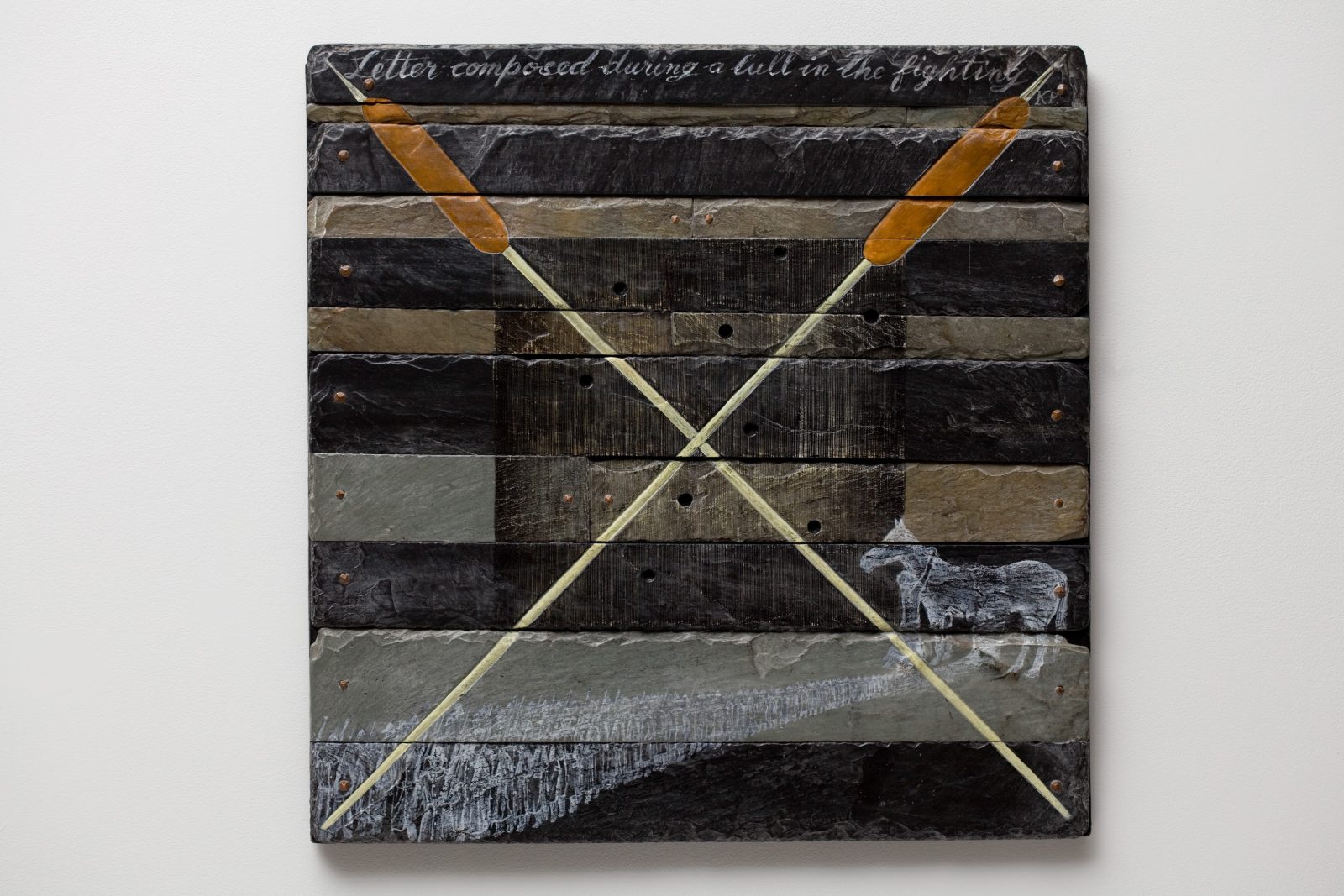
English and Welsh slate pigment and wax
500 x 510 mm
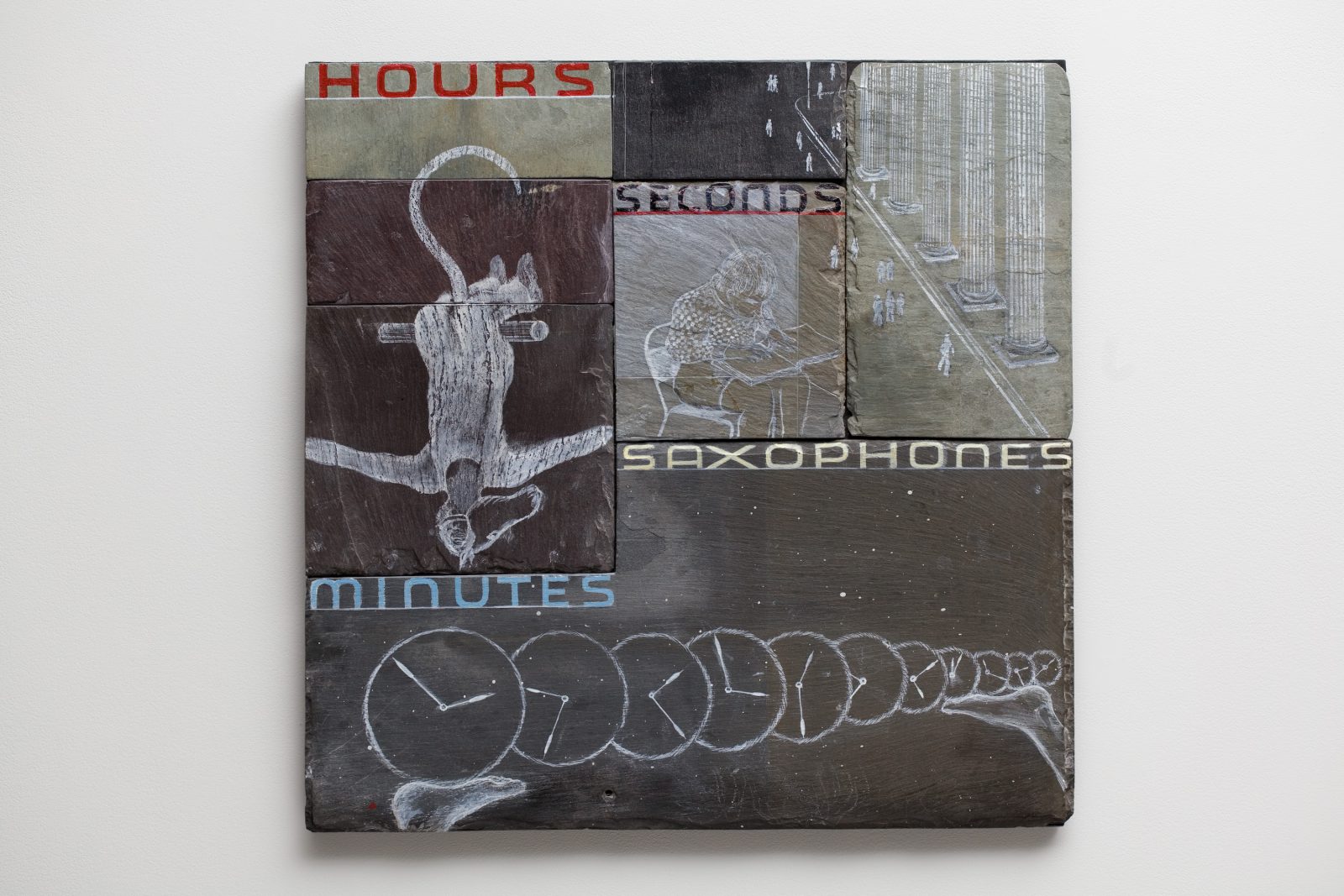
English and Welsh slate and pigment
510 x 510 mm
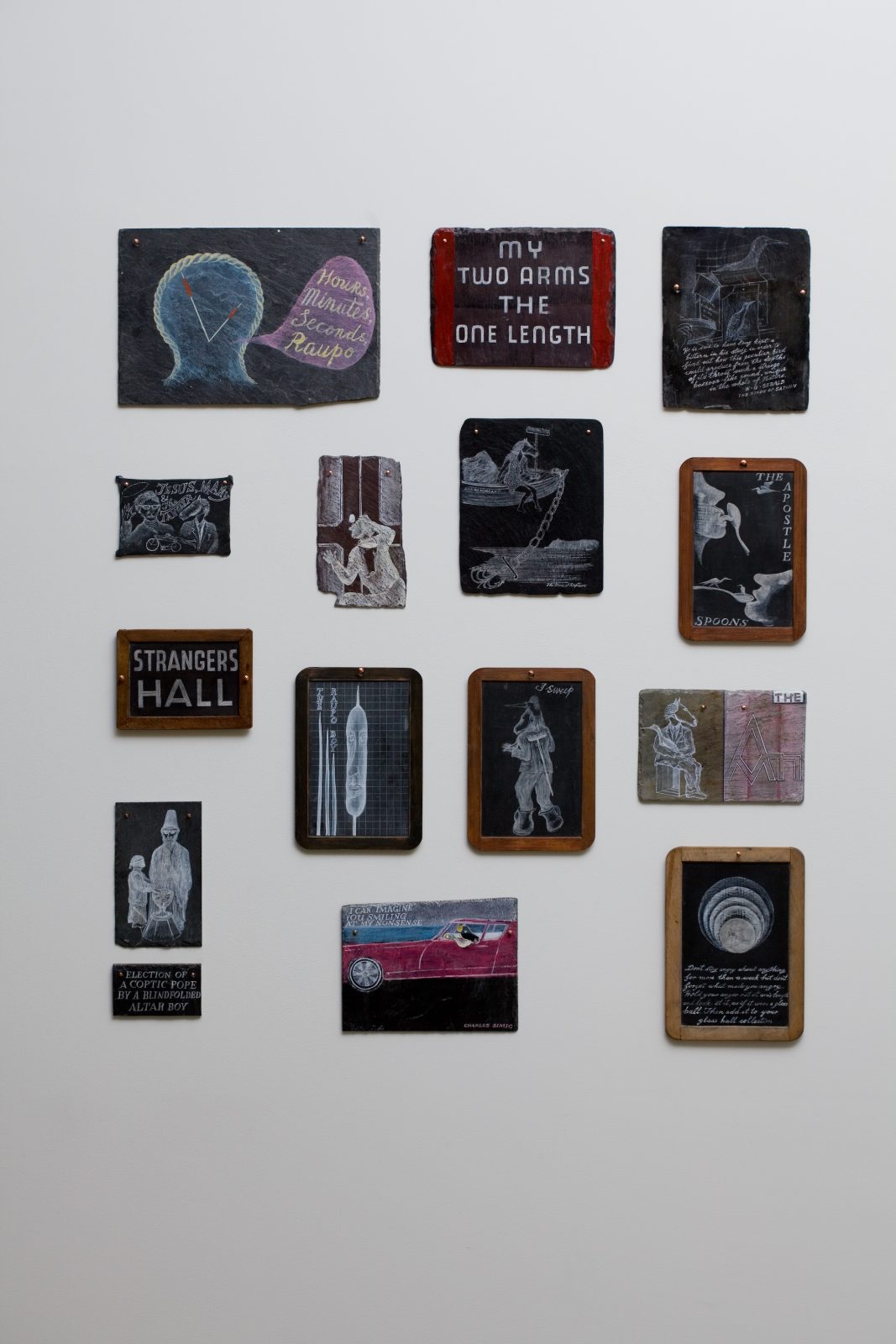
English and Welsh slate, pigment and wax
sizes variable